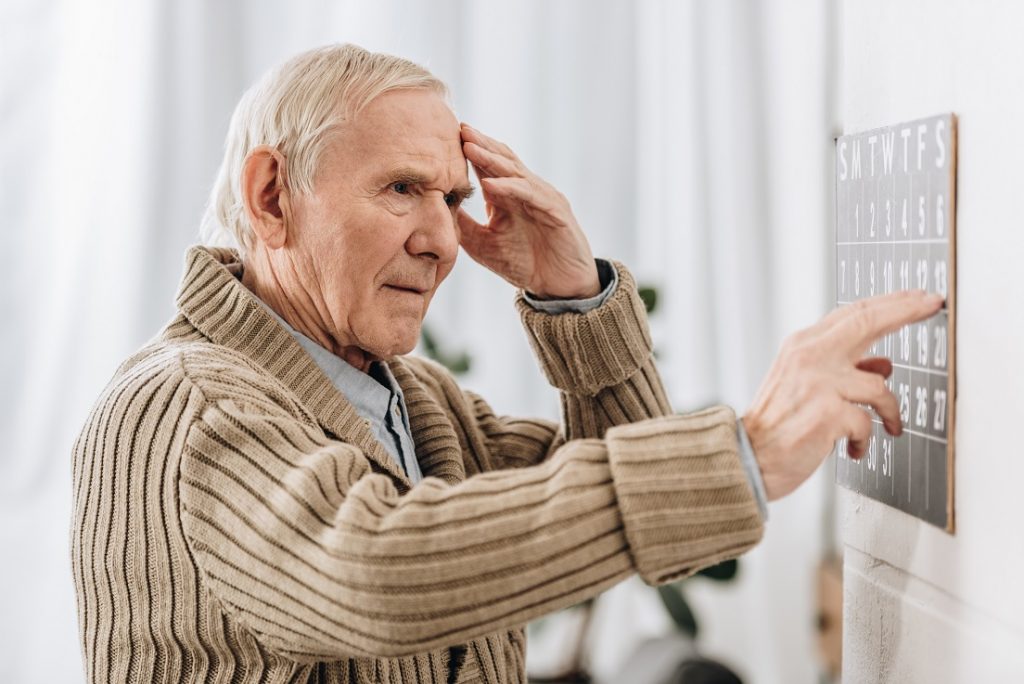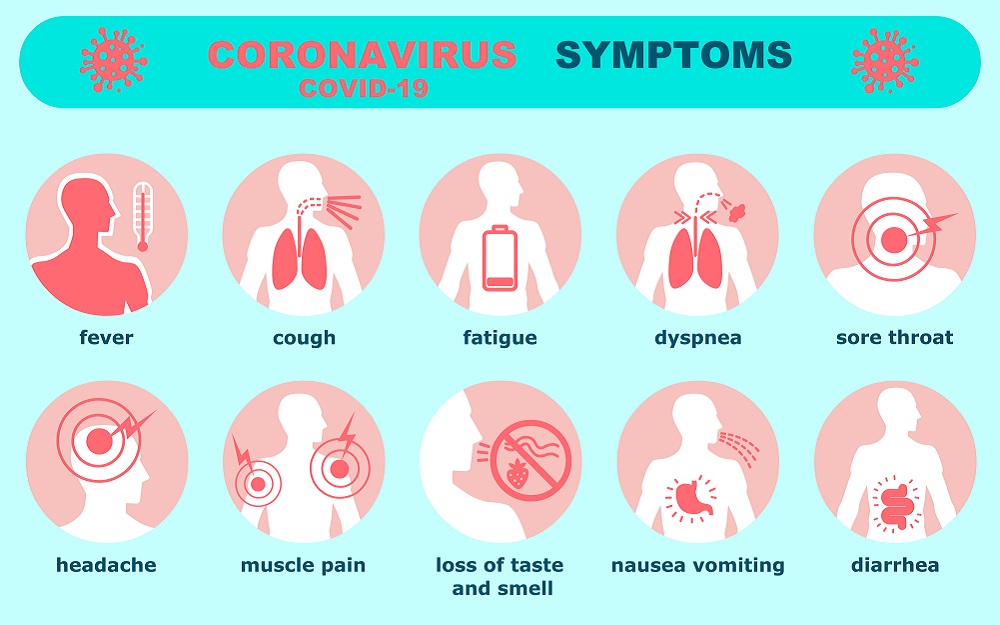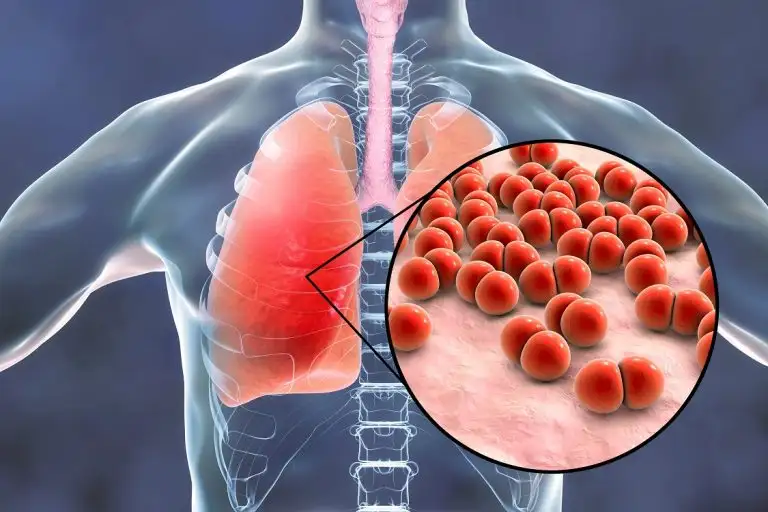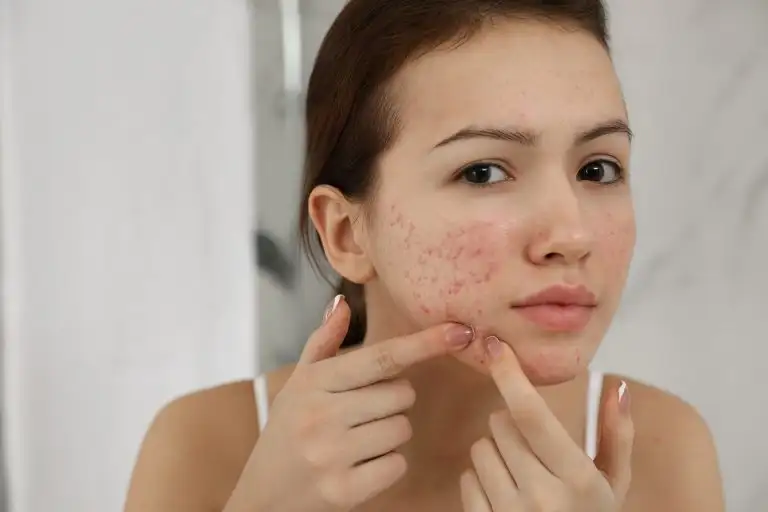The Surgical Dementia

Don’t say, ‘forget it!’ when you repeatedly forget. It demands brain imaging and some lab tests to see what’s messing with your memory—blood collection, tumor, thyroid, or simple B12 deficiency A septuagenarian couple was seated in my consulting room. The wife started to talk as soon as she caught her breath. “He’s been forgetting a lot of things these days,” she complained. “He doesn’t remember what he’s eaten this morning or how much money he withdrew from the bank the other day.” She sounded a tad exasperated about taking care of him. “Does he remember past events like which school he went to, his wedding date?” I questioned, hoping to give him some brownie points. “March 31, 1975,” he shot back, putting a gentle smile on her tired face. “He fumbles a little in his speech as well, I’ve been noticing.” I asked him to close his eyes and stretch his arms out straight in front of him, parallel to each other with palms facing the ceiling as I demonstrated the action myself. After a few seconds, I noticed his right arm drift downwards while his left was able to resist gravity. I explained to them that this was probably owing to something pressing down on the left side of his brain. “Do you drink?” I questioned innocently to postulate a diagnosis in my head. Husband and wife looked at each other and then at me. He shook his head sideways and she, up and down. “A few pegs a week doesn’t classify as drinking,” he reasoned. I asked them to get a CT scan done right away on the ground floor, and within the hour they were back at the clinic. “It shows exactly what I expected,” I said with slight cocky arrogance, even though most of the time that I order a scan for forgetfulness, it usually comes back normal. “You’ve got a chronic subdural hematoma,” I stated, describing it as a collection of blood between the bone and brain and probably responsible for his symptoms. “You must have bumped your head somewhere without realizing it,” I continued, explaining that this can happen in the elderly even without any definite trauma. The brain atrophies with age and if a tiny vein between the brain and its covering (the dura) snaps, it can cause blood to accumulate over time and cause this symptom. “It needs to come out,” I concluded, even before they could ask how we should go about it. The next morning with zealous quickness, we made two small incisions on his scalp and drilled two holes into the skull, a few inches apart, following it up with a cut into the dura. Dark altered blood emanated under high pressure. Although this is technically the easiest operation in our field and I must have done several hundred by now, I’m excited every single time I cut into the dura. With the delectation of a child, I’m eager to see what comes out. Each time the color of the blood has a varied hue of red, it jets out at a force that’s different every time, and the underlying brain is at disparate distances from the bone. I often joke with my dextrous orthopedic colleague that this is one neurosurgical operation I can teach him to perform because all it involves is drilling a hole into the bone. After ensuring that all the blood was out, we closed in the usual fashion. The next morning, his absent-mindedness was gone, and at dinner, he was crisply responsive about what he had eaten for breakfast and lunch. Dementia is a collective term used to describe various symptoms of cognitive decline. Forgetfulness is a symptom that plagues all of us at all stages of our life. As physicians, we need to discern which patient needs an MRI, or more importantly, in which cases can this condition be reversed. As the French philosopher Montaigne pointed out, you can be knowledgeable with another man’s knowledge, but you can’t be wise with another person’s wisdom. Surgical wisdom is just as hard to attain as the spiritual one. In my opinion, any elderly patient who has recent onset of forgetfulness should have their brain imaged. While blood accumulation is not uncommon, on occasion, I have also found tumors in the frontal lobe—the area that aids in planning, execution, processing feelings, and memories. I’ve also picked up an extra accumulation of fluid in the ventricles, which, when drained, reverses these symptoms. More importantly, forgetfulness is commonly seen in those having deficiencies of Vitamin B12 and low thyroid levels and can be easily reversed by supplementing them. So, before we start prescribing pills for dementia, let’s try and take a look at what’s going on inside; also because there’s a high chance your patient won’t remember taking the pills! “How do I keep my brain sharp?” a lot of people ask me. “Clean living and keep moving” is my standard response. There is really no rocket science here. Exercising, healthy eating, a bedtime routine, sound sleep, yoga, meditation, and expressing gratitude is what every single self-help book will tell you. The other day, three lovely old ladies came to take the vaccine at my hospital. They were in their 80s and I had made arrangements for them to be taken care of, as one of them needed a wheelchair. I came down to visit them in the waiting area where they relaxed for the mandatory 30 minutes once they took the jab. “Hi!” I said, happy to see them dressed in nice floral skirts, their faces powdered in the characteristic way that elderly Parsi women step out in the afternoons. “Can you give me some medication for my memory, please?” the one in the center said. “I’m forgetting a lot these days.” “And she fumbles with her words too,” her friend added. “This COVID is driving us insane,” the first justified. “It’s so depressing. Plus, we live alone. What if we get it? There are no
18-year-Old Post-Covid Patient with Loss of Taste and Smell For 10 Months Successfully Treated at Mira Road

Many post-Covid patients are visiting experts with various complications such as shortness of breath, fatigue, pneumonia, brain inflammation, seizures, lung fibrosis, and acute respiratory distress syndrome (ARDS). A team headed by Dr ChandraVeer Singh successfully treated an 18-year-old woman who reported a loss of taste and smell for 10 months after getting infected with Coronavirus. Ms. Amanjyot Kaur, 18-year, resident of Mira Road, exhibited symptoms such as loss of taste and smell, fever, in June 2020. The patient was admitted to the hospital. Took treatment at home for Covid. The patient was back on track after 20 days. To her dismay, even after testing negative for Covdi-19, she continued to experience loss of taste and smell. The patient earlier didn’t pay attention to it as she thought her senses may return in time. But, to her dismay, she was shocked when she could not taste or smell even after 10 months. The patient panicked and visited Wockhardt Hospitals, Mira Road wherein she received prompt treatment. Dr. ChandraVeer Sigh Consultant Otorhinolaryngologist and Head & Neck Onco Surgeon, Wockhardt Hospital Mira Road said, “Many patients who test negative for Covid-19 may exhibit some or the other symptoms. This patient came with a loss of taste and smell for around 10 months. A complete loss of taste is called ageusia, which makes a person unable to detect any tastes. Temporary loss of smell or anosmia is when a person is unable to smell or recognize the smell. Loss of taste and smell occurs due to inflammation and edema of the Olfactory nerve due to Viral infection. Usually, the patient recovers in 4 weeks. Hence, the patient was prescribed a nasal spray and systemic steroids medications, Vitamin C and D, and Vitamin A, supplements Within 10 days after medication her senses of smell and taste came back. With an increasing number of covid patients, the number of post-Covid patients with loss of smell and taste increasing. Although there is no treatment for long-lasting loss of smell and taste in patients but we have treated 5 to 6 patients successfully in our hospital. “I was aware that loss of taste and smell are the common listed symptoms of Covid-19 and the senses return in few days. But I was stressed, anxious and depressed when the senses did not return over months. Everything just tasted like sand. I would add spices to the food and even used aromatic herbs but nothing seemed to do the trick. I would constantly try to smell things, use perfumes so that I can get the fragrance, and try to smell foods. It is frustrating when people around you can smell and taste and you can’t. I thought, I permanently lost my senses. I lost interest in my daily activities like cooking, cleaning, and eating as well. I would cry alone and be restless all the time and would avoid socializing with family and friends. Do not ignore these underrated symptoms,” concluded the patient Ms. Kaur. Source: http://mediabulletins.com/health/18-year-old-post-covid-patient-with-loss-of-taste-and-smell-for-10-months-successfully-treated-at-wockhardt-hospitals-mira-road/
An expert explains why covid-19 pneumonia can be deadly in many ways

A harmless headache can be a symptom of the deadly covid-19 pneumonia. Stay alert and keep an eye on any unusual signs. Being forewarned is being forearmed, this idiom fits in perfectly well with the situation we are going through right now. Every single day, we are being bombarded with a lot of information around covid-19 – whether it’s new research or baseless rumors that have nothing to do with the disease. That’s why being well-informed always comes in handy. The declaration around covid-19 being air-borne has sent shock waves all over the country. Maybe, that’s the reason why cases and deaths are on the rise. But aren’t you wondering, like many others, as to why more people are losing their lives to this virus? That’s because the new mutation is causing covid-19 pneumonia. Friends, don’t make the mistake of confusing it with common pneumonia, because it’s not. The symptoms are not too different either – which makes it even more tricky to identify. That’s why we want you to know every detail about covid-19 pneumonia so that you can curb it at the initial stage. According to Dr. Bipin Jibhkate, consultant critical care medicine, and ICU director Wockhardt Hospital, Mumbai, covid-19 pneumonia is a serious and life-threatening lung infection that causes inflammation in the tiny air sacs to present inside one’s lungs. It is one of the major complications of covid-19 and can be seen in post-Covid patients. Unfortunately, a CT-Scan is the only way to figure out, whether you have it or not. Here’s what determines if you’ll get covid pneumonia or not “You may get covid-induced pneumonia, if you are severely ill with coronavirus, have poor lung function, and are on oxygen support. The coronavirus can damage your lungs, leading to the clotting of lungs and thickening of the walls of the air sacs. It is these symptoms that can cause breathing problems and pneumonia. So, people who are above 65, have asthma or an underlying lung problem, and other comorbidities like diabetes or heart problems may suffer from it. Even smokers and those with a weak immune system will get covid pneumonia,” warns Dr. Jibhkate. Symptoms of covid-19 you need to watch out for Headaches, nausea, vomiting, chills, fever, constant cough, belly pain, congestion, runny nose, diarrhoea, breathlessness, sweating, dizziness, rapid breathing, and sore throat are some of the common symptoms. We know these look like very regular symptoms, but that’s what makes covid-19 pneumonia even more lethal. People generally tend to ignore these symptoms, and when their oxygen levels suddenly drop, it becomes too late. “If you notice chest pain due to heavy breathing and constant coughing, it is best to rush to a doctor without fail. That’s because it’s a sign that your lungs are not in the best shape. Also, if you see any of these symptoms, keep an oximeter handy and note your oxygen levels. Ensure your oxygen levels are above 90. If it’s below that, consult your doctor as soon as possible” advises Dr. Jibhkate. Here’s how covid-19 pneumonia affects your lungs “Small air sacs in the lungs called alveoli to get filled with fluid when you have pneumonia. If you have pneumonia, you won’t be able to transfer oxygen to the blood or will be unable to get rid of the carbon dioxide in the body. This can lead to respiratory failure. Lung abscesses can occur, in which one’s lungs get filled with pus,” explains Dr. Jibhkate. Dr Jibhkate shares some tips on how you can prevent it “Wash your hands thoroughly with water, and scrub them properly several times a day. Avoid touching your face, mouth, or nose. Masking, social distancing, and hand sanitizing are the need of the hour, follow cough/sneeze etiquette, opt for lung exercises, don’t be around sick people, and eat a well-balanced diet to boost your immunity,” suggests Dr. Jibhkate. The basic idea is to try and improve the functioning of your lungs by performing deep breathing exercises. So, even if you require an oxygen cylinder, you can very well delay that stage, because your lungs are strong enough to deal with it. Another thing you should know before you step out to get an oxygen cylinder is that oxygen therapy can also be taken at home. But for that, you will have to first talk to your doctor. Also, those of you who are planning to buy a concentrator must listen to Dr Jibhkate. “A concentrator can be kept at home after consulting your doctor. Oxygen concentrators can be helpful for patients infected with covid-19, in case the patient’s oxygen levels drop. This machine will help to filter oxygen from the atmosphere and help one to get it via a mask or cannula. Hence, it can be one of the options to boost oxygen levels. Also, I would like to advise not to stock these things up, because there are people who might need it more than you,” concludes Dr. Jibhkate. He has a piece of advice — if there are people at home with respiratory problems like asthma, you should definitely get a concentrator at home. The bottom line is: don’t take the risk of getting your lungs damaged, because covid-19 pneumonia may have long-term implications. So, as soon as you see a symptom, report it right away to get things under control in time.
Expert Tips: Fasting During Ramadan for Diabetics

Diabetic patients who fast during Ramadan are likely to be at risk of major health complications. Diabetes is a health condition that occurs when sugar rises in the blood as a result of a deficiency in the insulin hormone or the resistance of the body cells leading to the accumulation of glucose in the blood. Patients with high blood sugar will typically experience polyuria (frequent urination), they will become increasingly thirsty (polydipsia) and hungry (polyphagia). Diabetic patients who fast during Ramadan are likely to be at risk of major health complications. Hence they should fast only if their doctors consider them fit enough, experts say. The month-long period that is typically marked by long fasting hours during daylight hours is followed by a grand feast each evening after sunset (Iftaar), which can be continued till pre-dawn (Sehri). According to health experts, such long gaps between meals that range from 12 to 15 hours may lead to metabolic changes in the body, which can pose serious health problems for diabetes patients. “If you are diabetic but still want to keep the fast during Ramadan, it is always better to consult your doctor to take all necessary precautionary measures while fasting,” Vikas Ahluwalia, Director (Diabetes and Obesity Center) at the Max Super Speciality Hospital, Saket, told IANS. Restriction of fluid intake during such fasts can result in dehydration as well as fluctuations in sugar levels. “Long fasting, combined with food intake two-three times over a short span of time may cause wide fluctuation in sugar levels,” Rakesh Kumar Prasad, Senior Consultant (Department of Endocrinology) at Fortis Hospital, Noida, told IANS. Diabetics while fasting can either face hypoglycemia — a sudden fall in blood sugar levels — which can cause seizures and unconsciousness or hyperglycemia — an increase in blood sugar — which may cause blurry vision, headaches, increased fatigue, and thirst. Type 1 diabetics, or those who have a history of recurrent hypoglycemia, are at a higher risk if they fast. “Patients are required to monitor their blood glucose level at regular intervals. In case a patient is on insulin, there may be a need to change its dosage,” Shehla Shaikh, Consultant (Endocrinologist) from Mumbai’s Wockhardt Hospitals, pointed out. Doctors said the condition of diabetics can worsen with a “potentially life-threatening complication” called diabetic ketoacidosis — a serious complication in which the body produces excess blood acids (ketones) and which causes vomiting, dehydration, deep gasping breathing, confusion, and even coma. They can also develop thrombosis, which leads to the formation of a blood clot. “Doctors and patients must work together on how to organize medication and diet schedules so that diabetes is managed effectively during the 30 days of Ramadan,” A. Ramachandran, founder of Chennai’s Dr. A. Ramachandran’s Diabetes Hospital, told IANS. Ideally, one should consult a doctor a month in advance and follow the advice given on diet, insulin dosage, and any other medication prescribed, the doctors suggested. It is essential for diabetic patients to control the intake of high carbohydrate foods, as they affect the sugar level particularly for people with Type 2 diabetes. Consumption of carbohydrates such as sugar, rock sugar, palm sugar, honey, and sweetened condensed milk should be limited. However, carbohydrates with a low glycemic index such as brown rice, full-grain bread, and vegetables are better options than white rice, non-full grain bread, or potatoes. While breaking the day-long fast, the body needs to be well hydrated and one should drink sugar-free and decaffeinated fluids. “It is important for a diabetic to take natural sugar in the form of fruits instead of juices,” renowned dietician and nutritionist Ritika Samaddar told IANS. At Sehri one should eat food in small quantities. Avoid sweets, fried snacks, and foods that have high salt or sugar content. Also, one should not sleep soon after dinner. A minimum two-hour interval should be maintained. “It is important to take a balanced meal with 20 percent to 30 percent of it as protein. A good idea would be to include fruits, vegetables, and salads in your meals and to use healthier cooking methods such as baking and grilling,” Ramachandran maintained. The Sehri should include more proteins and fewer carbohydrates with lots of fruits, whole grain bread, whole grain low sugar cereals, beans, and lentils. “Combine the pre-dawn food with proteins like eggs or dal which gradually releases energy through the day. To make up for the whole day, a wholesome meal consisting of carbohydrates, proteins, and healthy fats is important,” Samaddar explained. “For diabetic patients, the decision to fast should be made keeping in mind religious guidelines for exemption and after careful medical consultation to ensure a safe and healthy Ramadan,” Ahluwalia noted. Source: https://food.ndtv.com/health/expert-tips-fasting-during-ramadan-for-diabetics-1417178
POST RECOVERY CARE FOR COVID-19 PATIENTS

So you have made it out of the storm! Covid-19 has been a storm that is taking away a lot of lives with it. But the good part is that there is a huge number who are getting through without any major complications. So let’s focus on the positive and see how you can get better post-Covid. Recovering from Covid-19 takes time, the duration of which is unknown. Mild cases usually take two weeks and severe cases may take up to a month or even more sometimes. And that is where the term long Covid has evolved. The current recovery rate in India is approximately above 90% which is again a good sign. Irrespective of whether you struggled with a mild or a severe infection, your body needs time to recuperate and rejuvenate. You have just come out of a deadly disease and your body needs a break. Lethargy and fatigue post-Covid is quite normal. You have gotten out of the disease but you need to be cautious about your health over the next few weeks. Here is a complete to-do list of post-Covid care for you: REST, RELAX, REPEAT Although your symptoms have disappeared, it is possible that you still have residual weakness and lassitude. Give yourself a break. Take some time off and help your body recover. When you are well-rested, your body can heal faster. Get your beauty sleep of 7-8 hours minimum to speed up your recovery. Avoid getting back to your old lifestyle of constant hurry. Do not immerse yourself into work right away. Stress and work can worsen your symptoms. EAT HEALTHY A healthy, nutritious, balanced diet is going to do you good. Food ensures that the path to recovery is smooth. Eat all healthy foods to gain strength and energy. Include plenty of liquids like soups, juices, coconut water in your diet. Eat a protein-rich diet to promote healing and repair. Include legumes, lentils, seeds, nuts, lean meats, and eggs for adequate protein intake. Eat 1 fruit a day and add lots of veggies to your diet. Your plate must be as colorful as the rainbow to ensure complete nutrient-packed meals. BRAIN EXERCISES Covid-19 is notoriously known to damage brain and neural cells. To prevent further damage and avoid future memory issues, it’s best to exercise your brain cells now. Indulge in some memory games like sudoku, mathdoku, jigsaw, crosswords, chess. Get your brain cells working and rack your brain to solve these puzzles daily. Take it slow but be consistent. It is necessary to regain your cognitive thinking abilities, memory, and increase your attention span. With these easy post-recovery care tips, it will make your convalescent-phase smooth and quick. While trying to recover, do not lose focus on your symptoms. Watch out for any symptoms that are uncalled for. Monitor your blood oxygen levels using your pulse oximeter and look out for any new symptoms that may arise as a part of Covid-related complications. If you experience shortness of breath, severe pain or tightness in the chest, warm flushes, or anything away from your normal, consult your physician right away. Source: https://thedailyguardian.com/post-recovery-care-for-covid-19-patients/
Viral beauty trend: Can drinking chlorophyll reduce acne?

It is no secret that TikTok and Instagram are from where most beauty junkies get their tips. The apps contain tricks and trends, and some really bizarre ingredients. As such, it has managed to make another trend social media popular: drinking chlorophyll water. Yes, the very green ingredient found in plants, which gives them the green color and helps with photosynthesis. Content creators are apparently chugging it down because it heals acne and the redness caused by it. But, is it really efficient? To understand it, we connected with Dr. Kaleem Khan, MD, Consultant Dermatologist at Wockhardt Hospitals Mumbai Central. Healthline defines it as one that “plays an important role in making plants green and healthy. It also has vitamins, antioxidants, and therapeutic properties that have the potential to benefit your body”. Chlorophyll can either be obtained from plants or through supplements. One thing to keep in mind, however, is that this ingredient does not get absorbed enough. Does chlorophyll have any effect on acne? “Directly it does not have any effect on treating acne whatsoever,” Dr. Khan says. So what happens when we consume it? Just like plants, chlorophyll “attracts sunlight to your skin, and that way, it can have some role to play in treating acne or the eruptions”, says the dermatologist. This concept is known as ‘photodynamic therapy’ practiced by dermatologists. “Here, a photosensitizing chemical substance is added to the skin. The skin is later exposed to blue or red light and this kills the acne-forming bacteria,” Dr. Khan. Rather, when we consume chlorophyll, it is making our skin more sensitive to sunlight. “We are in a bid to protect our skin but driving chlorophyll is making it more sensitive,” he explains. Can it reduce acne or redness? “It will actually become worse if you go out in the sun because your skin has become too sensitive to the exposure,” says the dermatologist. He says this trend of drinking green pigment affects those more, who are in the tropical regions. “It is almost like inviting a sun rash or a sunburn,” the doctor concludes. Source: https://indianexpress.com/article/lifestyle/life-style/viral-beauty-trend-drinking-chlorophyll-acne-skincare-7288100/
Taking care of Covid patients at home: Some simple do’s and don’ts

What are you expected to do if you have a Covid-positive patient in the family, and are sharing your home space with them? Often, complete isolation may not be possible, and as such, you may find yourself in the same house as your parent, spouse, child, or anyone else who has tested positive for COVID-19 but does not need hospitalization. Instead of feeling overwhelmed and panicky, arm yourself with some knowledge. Remember, while it is easy to feel scared given whatever is happening at the moment, it is necessary that you keep your calm, take care of the patient, while also keeping your own health. Here is a simple home advisory and dos and don’ts for caregivers, courtesy of Dr. Behram Pardiwala — Internal Medicine, Wockhardt Hospitals Mumbai Central. Read on. Do’s: – It is extremely important for all family members to wear a mask all the time in the house.– Patients’ clothes must be washed separately, but first soaked in disinfectant.– Disinfect common washrooms all the time, in case there is no provision for separate washrooms.– Dispose of patients’ disposable material in a separate yellow bag given for biohazard material. Don’ts: – Do not enter the Covid-positive patient’s room, as it is proven to be more of an airborne disease than a contact-based disease. In addition to these, it is also expected that you sanitize your hand, and wash it with soap and water before preparing meals, before eating. etc. Make sure that the patient’s utensils are separate, and they are cleaned thoroughly. Do not step out of the house and interact with other people. Keep calm, and remember this will pass. Source: https://indianexpress.com/article/lifestyle/health/taking-care-of-covid-patients-at-home-some-simple-dos-and-donts-7283190/
When a wound does not stop to bleed….don’t ignore the sign

World Haemophilia Day is recognized worldwide to increase awareness of haemophilia and other inherited bleeding disorders. This is a critical effort since with increased awareness comes better diagnosis and access to care for the millions who remain without treatment. Hemostasis is the process by which bleeding is arrested after injury to blood vessels. In bleeding disorders, the blood clotting mechanism is deficient and after an injury or wound it can result in heavy or prolonged bleeding. What bleeding disorders have in common that they make it hard for bleeding to stop, which can cause problems during emergencies and surgeries. Bleeding disorders are passed down (genetic predisposition) from parents to child, but can in some cases show up without any other family members having it. Two most common condition is Haemophilia is likely the most known bleeding disorder and Von Willebrand disease (VWD) . The signs and symptoms are very typical. Don’t ignore these signs and symptoms below which are associated with bleeding disorders: • Bleeding lasts longer than usual• Nose bleeds may happen for no reason• Bleeding may stop and re-start unexpectedly• Bruises and may occur frequently. Bruises may be large. Bruises may be unexplained.• Blood may be present in the urine or stool• Dental bleeding may take longer to stop• Bleeding in joints with swelling• For women, menstrual periods may be very heavy or last a long time.• Joint and/or muscle pain or swelling after minor accident or injury• Small red spots on the skin (petechiae); may sometimes look like a rash• Small purplish spots on the skin (purpura) or large purplish lesions (ecchymosis) caused by bleeding under the skin• Blood in the stool; bleeding from the digestive tract• Arthritic-type symptoms from damage from bleeding into joints• Loss of vision with bleeding in the eyes• Chronic anemia (often iron deficiency anemia) Some indicative Pathological tests that determine bleeding disorder include:• Complete blood count show decreased platelets may indicate a platelet disorder and anemia (low Hb) may indicate due to excessive bleeding.• Coagulative factors show the Decreased activity of one or more factors may indicate factor deficiency or specific factor inhibitor. Prothrombin time (PT) and partial prothrombin time (PPT) are low as well as other blood clotting and coagulative intrinsic factors parameters. General Treatment of these conditions: Bleeding disorders generally need specialized consultation and advice as there are chronic conditions. Apart from iron supplements, blood transfusions, and clotting factors, it is better to consult a haematologist for a proper treatment plan. Haematology is the branch of medicine concerned with the study, diagnosis, treatment, and prevention of diseases related to the blood. It involves diagnosing and further management of diseases that affect the production of blood and its components, such as blood cells, haemoglobin, blood proteins, bone marrow, platelets, blood vessels, spleen, and the mechanism of coagulation.A few of these different types of blood conditions that are looked at include anaemia, thalassemia, haemophilia, general blood clots, bleeding disorders, blood cancers etc. are also treated by a haematologist. At Wockhardt Hospitals, we have essentially a team of highly trained haematologist, haemat-oncologist nurse clinicians, physical and occupational therapists who are all equipped to provide patients with care in the field of Haematology. To know more about bleeding disorders and if you are experiencing any of these signs and symptoms please consult our hematologist at Wockhardt Hospitals, Nagpur.
7 Tips to control weight gain and diabetes while working from home

It has been over a year that the world is still fighting Coronavirus. To curb the spread of Covid-19 in our country, people have been asked to follow the Covid protocols like wearing a mask, maintaining social distance and staying indoors. Working from home is one of them and most of us have been doing this now for a year. Constantly staying at home, bingeing on sugary and junk foods, lacking physical workout, etc. have contributed to weight gain in many people. Some are also suffering from diabetes. During the pandemic, existing diabetes-diagnosed patients found it challenging to manage their weight and reduce their blood sugar levels, leading some to consider diabetes surgery as a potential solution. But we cannot accept this helplessness and let our blood sugar levels spike. We have to use certain easy hacks at home to lose weight and control diabetes. So, Dr Rajiv Manek, Consultant Minimal Access and Bariatric Surgeon, Wockhardt Hospitals, Mira Road, Mumbai, has shared some tips regarding this issue. Watch what you put into your mouth Mindful eating is essential. Try to break down the foods into proteins, fats, and carbohydrates to determine if the food is good or bad for you. If you have diabetes or are obese then avoid eating food laden with sugar or high in carbohydrates. Get physically active People have been asked to avoid traveling and work from home. There is not much physical activity in our space. Hence, people should include exercises like brisk walking while maintaining social distance. Keep stretching throughout the day to stay active and fresh. Opt for desk workouts, try to do squats, push-ups, pull-ups, and light-weight bearing exercises. Plan your meals Have a proper structure of what you are going to eat and avoid. Get rid of processed, oily and junk food. Read the nutrition labels before buying snacks. Do not start your day with fried foods as you may end up feeling lethargic. Keep your workspace away from the kitchen or else you will keep on eating and gaining weight. Avoid using electronic gadgets while eating and do not skip your meals. Maintain the same meal timing every day. Follow a well-balanced diet Incorporate a lot of fresh fruits and vegetables into the diet. Replace your fried meals with a bowl of salad or soup to skip those calories. That will keep your glucose levels in control and help you deal with insulin resistance. Out of 5 meals in a day, replace at least one meal with a big bowl of salad and another with a bowl of fruits. Fresh fruits are packed with antioxidants, vitamins, and minerals. Instead of popping vitamin supplements or pills, just eat fresh fruits. Opt for an early dinner that is by 7.30 PM in the evening. Desserts should be consumed in the first half of the day. Try to stay hydrated by drinking lots of water. Have green tea, black tea or black coffee for that metabolic boost. Practice portion control and bid adieu to your habit of midnight snacking. Avoid grazing in between the meals. Prefer baked snacks and avoid sugar-laden cookies. Curb your urge for binge eating. Avoid emotional eating just because you are overwhelmed. Keep a tab on your diabetes Avoid skipping medication and take the ones prescribed by the doctor. Do not self-medicate as it can be fatal for you. Get a sound sleep at night Cortisol is a stress hormone. High cortisol levels lead to elevated blood sugar levels. It also promotes unhealthy eating habits. So, sound sleep at night will reduce cortisol levels. Try to get at least 7-8 hours of sound sleep during the night and taking power naps in the day can be helpful. Get rid of stress Yoga and meditation will help you stay stress-free. Spend time doing what you like. Speak to your family and friends via video calls or phone. Take out some me time for self-love. Be at peace with your inner-self. Pay attention to what your body is telling you.
Gudi Padwa: Why are Neem and Jaggery Served as Prasad?

On this occasion of Gudi Padwa, Senior Dietician Swati Awasthi, Wockhardt Hospitals in Nagpur explains the benefits of eating Neem and Jaggery as Prasad. Unlike most Indian festivals, where Prasad comprises something sweet, Gudi Padwa is one of the few festivals where people are treated to a unique preparation made from neem & jaggery. The significance of this mixture is the basic essence of life itself, which is a combination of bitter & sweet, neem is bitter while jaggery is sweet. So while consuming this mixture, people are reminded that life is a blend of good & bad experiences, both of which must be faced with equal vigor. Helps in Detoxification The enzyme in the neem leaves & jaggery has the power to flush out all the waste & toxins from the body. This mixture works as a natural detox solution for the body. Helps in Protecting Skin Applying a mixture of neem & jaggery on your skin can help improve your complexion as well as protect you from UV rays & other radical damage. Helps in Weight Loss Jaggery & neem mixture gives a boost to your metabolism and helps the body burn fat cells. Helps in Deworming Yes, we all need deworming, i.e., getting rid of the worms in our stomach. Neem leaves have the power to kill microorganisms that harm the human body & destroy the worms in the stomach. Helps in Boosting Immunity Neem is full of antioxidants and jaggery can boost immunity, Together they help strengthen the body and keep it safe from common ailments. Helps in Preventing Ulcers Eating a mix of neem & jaggery has powerful gastroprotective elements. This helps in keeping stomach ulcers at bay. Helps in Healing Wounds Neem & jaggery as a mixture have many anti-inflammatory properties, Therefore, they help wounds heal faster.














